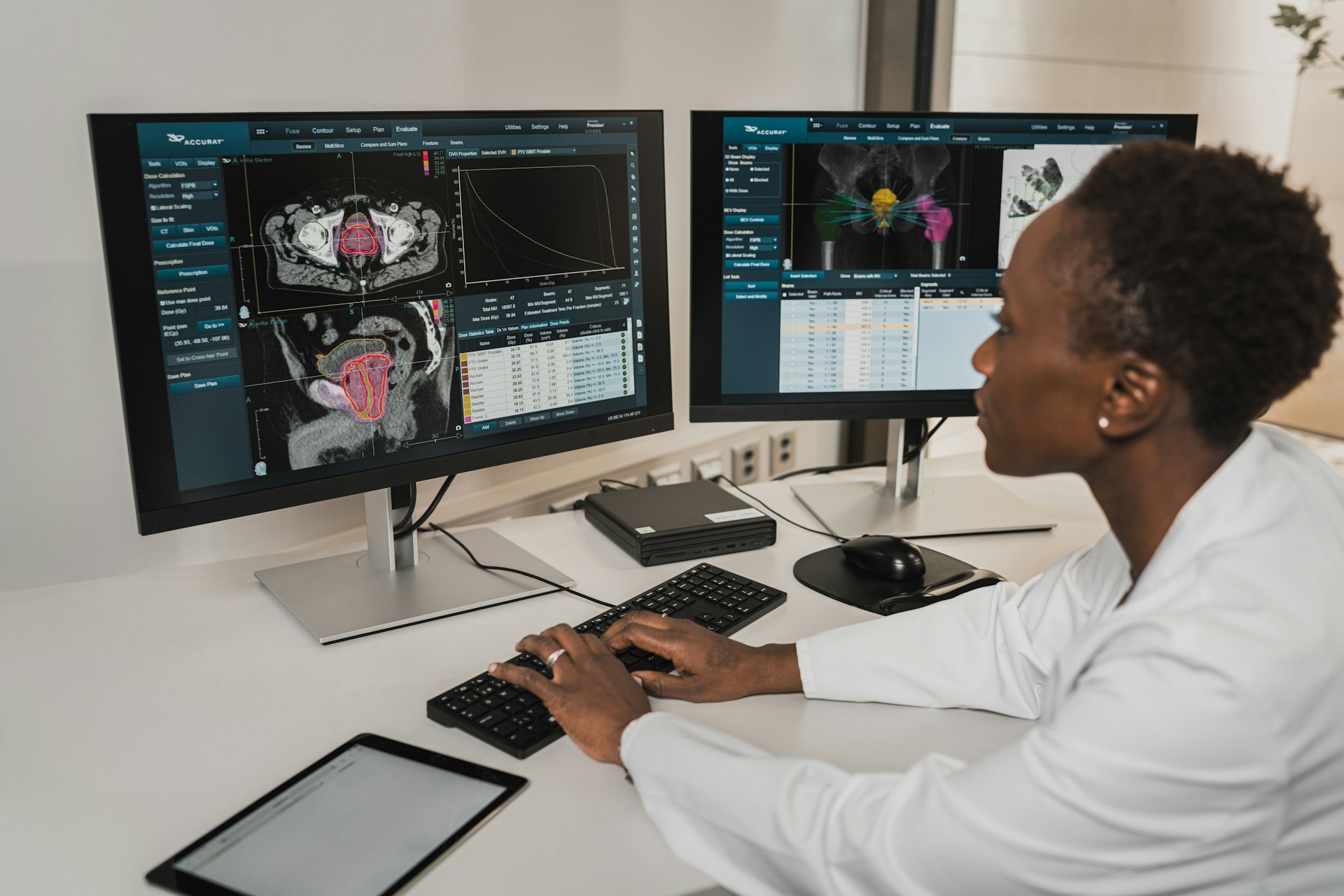

Could AI be a potential ally for GPs?
Artificial intelligence integration is practical for GPs.
Integrating artificial intelligence into general practice offers significant opportunities. It could optimise:
– patient data management;
– diagnostic accuracy;
– personalisation of treatment plans.
AI-based tools can also help with the early detection of chronic or rare diseases, enabling faster and more effective care.
Perceived benefits for practitioners:
Saving time and increasing efficiency
GPs recognise that AI can automate certain administrative tasks, freeing up time for patients. For example, intelligent algorithms can optimise the writing of reports and the management of appointments.
Improved diagnosis
Some practitioners use AI-based diagnostic tools that analyse symptoms and suggest diagnoses. These systems can provide a second opinion, reducing the risk of errors and increasing confidence in medical decisions.
Obstacles to the adoption of AI in general practice:
Lack of training and knowledge
A major obstacle to integrating AI into general practice is the lack of specific training. Many healthcare professionals do not feel sufficiently informed or competent to make optimal use of these technologies.
Ethical and deontological concerns
The use of AI raises ethical issues, particularly with regard to patient data confidentiality and liability in the event of an error. Doctors are concerned about how these tools protect medical confidentiality and about the legal implications of using them.
The successful integration of AI in general practice
For AI to be effectively integrated into GP practice, several conditions must be met:
Ongoing training: Professionals need to be trained in AI tools so that they understand how they work and their advantages. They also need to understand their limitations.
Interdisciplinary collaboration: AI tools must be developed in collaboration with doctors to ensure they address the practical needs of clinical work.
Clear regulatory framework: Clear guidelines must govern the use of AI in medicine to ensure patient safety and practitioner accountability.
Conclusion:
Integrating artificial intelligence into general practice represents a significant evolution in the medical landscape. While it offers promising prospects in terms of efficiency and quality of care, a considered approach is required that takes into account ethical, legal, and human issues. The successful adoption of AI in general medicine will require appropriate training, close collaboration between developers and practitioners, and a suitable regulatory framework.
Would you like to find out more?
Would you like to know more about the integration of AI into GP practice? PRS Healthcare recommends reading this thesis on the subject.